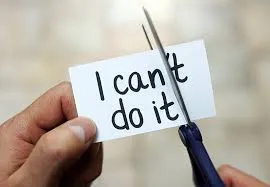
Assertiveness is the quality of being self-assured and confident without being aggressive.In Dorland's medical dictionary it is defined as a form of behavior characterized by a confident declaration or affirmation of a statement without need of proof; this affirms the person's rights or point of view without either aggressively threatening the rights of another (assuming a position of dominance) or submissively permitting another to ignore or deny one's rights or point of view.
It is considered a learnable skill and taught by many personal development experts and cognitive behavioural therapists.
As a style of communication assertiveness allows you a healthy attitude at dealing with someone else's personal boundaries as well as establishing your own, by switching between influencial speaking and active listening. This result is met by using:
-Eye contact that shows interest and sincerity
-Body language that demonstrates comfortability and the significance of the message
-appropriate Gestures
-well tempered Voice
-timing that maximises the receptivity of the listener and the impact of your words
-Content. Focus on the issue, not the person
There are also five specific techniques of assertiveness that can be used in various social situations. Let's examine them one by one.
- The Broken record technique which simply is repeating your requests or your refusals every time you are met with resistance.As with a broken record, the key to this approach is repetition ... where your partner will not take no for an answer.
example-->Someone is trying to persue you to go somewhere. There are your answers with him asking you again and again. Yes, I know it's important, but I don't want to go...Sorry, but I don't want to go...I realize what it means to you, but I don't want to go.
2.Fogging. It consists of finding some limited truth to agree with in what an antagonist is saying. Don't accept the argument just agree in part or agree in principle. You can also use this technique to avoid benign criticism, it is really helpful that way.
To do this you need to acknowledge the criticism, agree that there may be some truth to what they say, but remain the judge of your choice of action.
example-->I agree there are probably times I don't support you as much as you need.
3.Negative enquiry. It is the action of seeking out criticism about yourself in close relationships by prompting the expression of honest, negative feelings to improve communication.
example--> Do you believe I am not helping as much as I should??
4.Negative assertion. It is the agreement with criticism without feeling defensive or anxious, this also reduces your critics' hostility. You agree with criticism of your negative qualities but without beggng for forgiveness.
example--> Yes you are right, i don't always pay attention to what you say.
5.Workable compromise. When self-respect is not in question always consider a compromise with the other person Since there is not emotional goals you can bargain for achieving a mutual goal
example-->I understand we need to hurry but can you give me another ten minutes to finish this essay??
To conclude assertiveness can become a factor of success in forming meaningful relationships and in minimizing the distress of your work and social enviroment. Nothing is guaranteed in a relationship but being able to use mental tools to understand yourself and the other is a healthy way to come in terms with your opposing wills in times of heated up arguments.
Never take yourself lightly and never feel unworthy of respect. Everyone needs meaningful relationships in his life and it's never late to start persuing them.
If you liked my post, upvote & follow me: @theokritos
